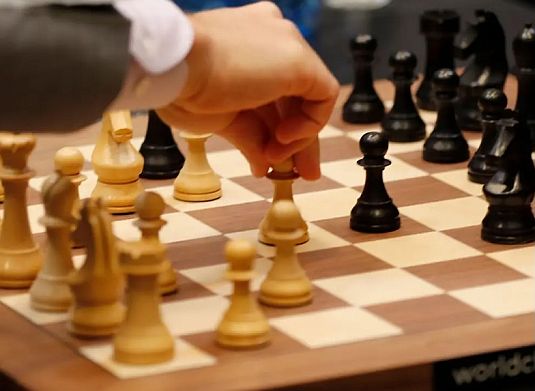|
The game of chess, like many games, may be played simply adversarially - that is to say one may play it solely to win and to ensure the other loses (except of course in the case of a draw). And to be sure, for many winning at chess is the entire raison d'etre for playing the game (the prize? the winner at chess gets to impose a kind of intellectual tyranny, a sort of superior intelligence over the loser). Magnus Carlsen, the Norwegian chess grandmaster and reigning five-time world chess champion, sums it up (as any prizefighter might) this way: "Generally I try to win at all costs" which (let's face it) is pure ego (even if we don't deem it to be that).
I'm a competent, decent chess player. My skill level is such that for the time being at least, Magnus hasn't got anything to worry about. I enjoy playing every now and then. Some of my most pleasant memories of playing chess are of sitting on an idyllic white sandy beach near the tranquil town of Vatos on the Greek Ionian island of Corfu, sipping ouzo around an old weatherbeaten chessboard with like-minded tourists. I love teaching my children to play chess, vicariously relishing in their delight as they learn, figure out, memorize, and apply each new move. What I don't do is play to "win at all costs" although of course I don't try to lose.
When I play, I may even reveal my strategy to my opponent (and especially to my children) while we're playing so that we can all benefit and learn from studying all the choices, options, and possibilities available in the game. We discuss them. I take pleasure in the interaction. Chess' adversarial nature isn't what attracts me to playing. What attracts me, indeed what's remarkable about chess is the opportunity to be the space in which the game shows up. That's the thing for me. When I'm playing chess, I'm contemplating and holding the space of all possible moves, not just of one piece but six or more possible moves the thirty two pieces can make in total. It's in contemplating all the possible moves the game permits and anticipates, that I get to see / be with / experience the space in which the game shows up.
